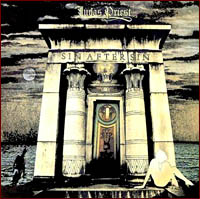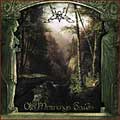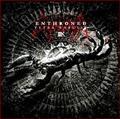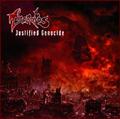JUDAS PRIEST (uk) - Sin After Sin (1977)

Label : Columbia Records
Sortie du Scud : avril 1977
Pays : Angleterre
Genre : Heavy Metal
Type : Album
Playtime : 8 Titres - 40 Mins
Prenez l’ex-bassiste d’un groupe phare (DEEP PURPLE), en l’occurrence Roger Glover. Ce bonhomme là jouit déjà, en 1977, d’une réputation de musicien exceptionnel. C’est d’ailleurs l’un des ex-Pourpres Profonds qui n’intégrera jamais le WHITESNAKE de Coverdale, au grand dam du beau David. Après tout, Glover a entre autres révolutionné l’approche de la quatre cordes au sein d’un groupe de Rock, et s’est affirmé comme un compositeur hors pair et très polyvalent. N’oublions pas que The Butterfly Ball, si si, vous savez, la grenouille qui joue du banjo en chantant « Love Is All » avec la voix de Ronnie James Dio, eh ben c’est Roger Glover.
Associez Glover à un groupe de Heavy Metal en devenir, libéré de son fardeau contractuel (avec Gull Records) et vous obtenez le Sin After Sin de JUDAS PRIEST. Naturellement, le son étonnamment Heavy de ce troisième album, très proche des productions de BLACK SABBATH, s’explique par la présence d’un bassiste à la console. La lourdeur avec laquelle Ian Hill accompagne Glenn Tipton et K.K. Downing sur ce « Starbreaker » au riff imparable en témoigne. Par la suite, les parties de Ian Hill ne seront d’ailleurs plus trop identifiables …
Il y a aussi ces rythmiques incisives, à base de power-chords étouffés, qui caractérisent et définissent un peu plus l’identité du PRIEST, à l’image d’un « Sinner » d’anthologie ou d’un « Dissident Aggressor » que reprendra SLAYER sur South Of Heaven, dix ans plus tard. Sur ce dernier, Rob Halford enchaîne les exploits vocaux, passant d’une octave extrême à l’autre avec une facilité écoeurante. Dans le même registre, il n’est pas rare que les combos de l’époque revisitent à leur sauce des morceaux d’autres artistes. Ainsi, la reprise Joan Baez, « Diamonds And Rust », se voit électrisée tout en conservant son accrocheuse mélodie, pour un résultat des plus efficaces.
Fort du succès rencontré par « Victim Of Changes », JUDAS PRIEST renouvelle abondamment l’expérience des harmonies en twin guitars, notamment sur l’intro de « Let Us Prey ». Lorsque déboule l’accéléré « Call For The Priest », on découvre sûrement l’une des origines du Speed Metal aux bases posées par DEEP PURPLE (« Speed King » ?). Ce morceau, même s’il n’est pas exceptionnel, produit un effet saisissant lorsque les deux guitares de « Let Us Prey » réapparaissent comme par magie, avant de se succéder dans un déluge de soli magistraux !
JUDAS PRIEST est en revanche moins fidèle en ce qui concerne ses batteurs … Alan Moore a fait ses valises, et c’est un petit jeune qui prend sa place, un certain Simon Phillips. A à peine 19 ans (!!!), chaudement recommandé par Glover, le loupiot éclabousse de son talent Sin After Sin, laissant entrevoir une prometteuse carrière … Il faut l’entendre abattre ce boulot considérable sur « Raw Deal ». Dans la tradition des « Island Of Domination » ou « Rocka Rolla », ce Rock musclé et groovy, où la voix planante d’Halford contraste parfois sans dénoter, permet au gamin de s’éclater quand le tempo s’emballe enfin. Il s’agit d’ailleurs d’un schéma que JUDAS PRIEST va réutiliser sur ses prochains morceaux. Phillips n’en sera pas, son potentiel n’ayant d’égal que son ambition, ainsi Simon jouera avec Jeff Beck, THE WHO, Mick Jagger, Peter Gabriel, Mike Oldfield, TOTO ou même Michel Berger.
Mais il n’en est pas encore là … Nous ne sommes qu’en 1977, JUDAS PRIEST vit avec son temps, teintant ses ballades d’accords plein de reverb (« Last Rose Of Summer »), ou d’un certain désespoir sur « Here Comes The Tears », où Tipton et Downing affinent sérieusement leur jeu.
Néanmoins, malgré une progression encore bien marquée, JUDAS PRIEST n’atteint pas la superbe de Sad Wings Of Destiny. En fait, chaque nouvel album apporte au quintet un nouvel élément vital. Ici, on peut parler de rondeur dans le son. Bien que constitué de futurs classiques (« Sinner », « Diamonds And Rust »), il faut voir cet album comme une sorte de transition entre le Hard Rock des années 70 dont JUDAS est issu, et son propre Heavy Metal inimitable.
Discographie Complète de JUDAS PRIEST :
Rocka Rolla (Album - 1974),
Sad Wings Of Destiny (Album - 1976),
Sin After Sin (Album - 1977),
Stained Class (Album - 1978),
Hell Bent For Leather (Killing Machine) (Album - 1979),
Unleashed In The East (Live - 1979),
British Steel (Album - 1980),
Point Of Entry (Album - 1981),
Screaming For Vengeance (Album - 1982),
Defenders Of The Faith (Album - 1984),
Turbo (Album - 1986),
Priest ... Live! (Live - 1987),
Ram It Down (Album - 1988),
Painkiller (Album - 1990),
Metal Works '73-'93 (Best-Of - 1993),
Jugulator (Album - 1997),
Meltdown (Live - 1998),
Demolition (Album - 2001),
British Steel (DVD - 2001),
Live In London (DVD - 2002),
Live In London (Live - 2003),
Electric Eye (DVD - 2003),
Angel Of Retribution (Album - 2005),
Rising In The East (DVD - 2005),
Nostradamus (Album - 2008),
A Touch Of Evil: Live (Live - 2009),
British Steel - 30th Anniversary Deluxe Edition (Album - 2012),
Redeemer Of Souls (Album - 2014),
Battle Cry (Live - 2016)
Ajouté : Mercredi 09 Septembre 2009
Chroniqueur : NicoTheSpur
Score :   
Lien en relation: Judas Priest Website
Hits: 14301
|














